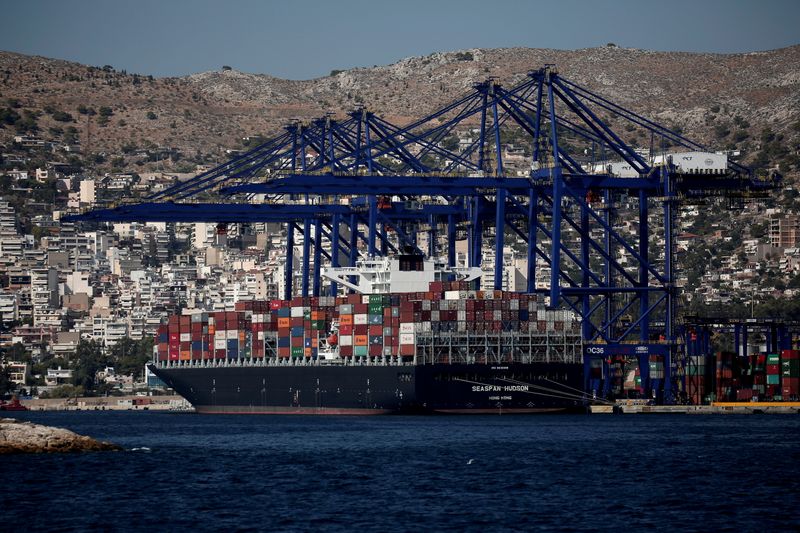By Kate Abnett
BRUSSELS (Reuters) - The European Union wants to overhaul its carbon market to cut planet-warming emissions faster and put a price on pollution from shipping, road transport and heating systems in buildings, a draft document seen by Reuters on Wednesday shows.
The bloc's executive European Commission will next month propose the biggest revamp of its emissions trading system (ETS) since the policy launched in 2005. The ETS forces power plants, factories and airlines running European flights to buy CO2 permits, creating a financial incentive to pollute less.
The reforms are part of a package of EU policies Brussels will propose on July 14 as it strives to meet the EU's target to cut net emissions by 55% by 2030, from 1990 levels. Most EU policies are designed to comply with an old climate target and need updating.
A draft of the ETS proposal, first reported by Bloomberg News, said the supply of CO2 permits in the ETS will face a one-off reduction.
The amount of permits entering the EU carbon market each year will also decrease at a faster rate, starting the year after the reforms apply, the draft said, without specifying how quickly the cap will fall.
The proposal would strengthen the ETS "market stability reserve", a mechanism designed to avoid a build-up of excess permits that could depress EU carbon prices.
The price of CO2 permits in the EU ETS has soared to record highs this year and is currently trading at roughly 56 euros per tonne.
When the ETS contains more than 1.096 billion spare permits, the reserve would absorb 24% per year until 2030. When there are 833 million to 1.096 billion permits in circulation, the reserve would absorb enough permits to bring that down to 833 million.
The Commission declined to comment on the proposal, which could change before it is published. Member states and the European Parliament must negotiate the final reforms, a process that could take roughly two years.
END TO FREE PERMITS
Free carbon permits will end for industries covered by the EU's planned carbon border levy, the draft said, a proposal manufacturing sectors are expected to resist.
The EU's climate policy package will include a border tariff to force importers to pay for the CO2 emissions embedded in goods such as steel and cement. Importers' fees per tonne of CO2 would be linked to the EU carbon price to try to put European firms on a level footing with companies abroad.
Other industries would also get fewer free permits, under proposals to strengthen the benchmarks that calculate each sector's free permits, while firms must prove they are investing in cutting CO2 to receive them.
The EU carbon market will expand to include shipping, which until now has not been covered. Emissions from maritime trips inside Europe and incoming voyages to the EU would both be covered, the draft said.

It would also create a separate ETS for transport and heating systems in buildings. Those sectors would face CO2 costs from 2026.
The Commission has said it will use revenues from the new ETS to create a fund to support vulnerable households, if their fuel bills increase as a result of the carbon pricing system.